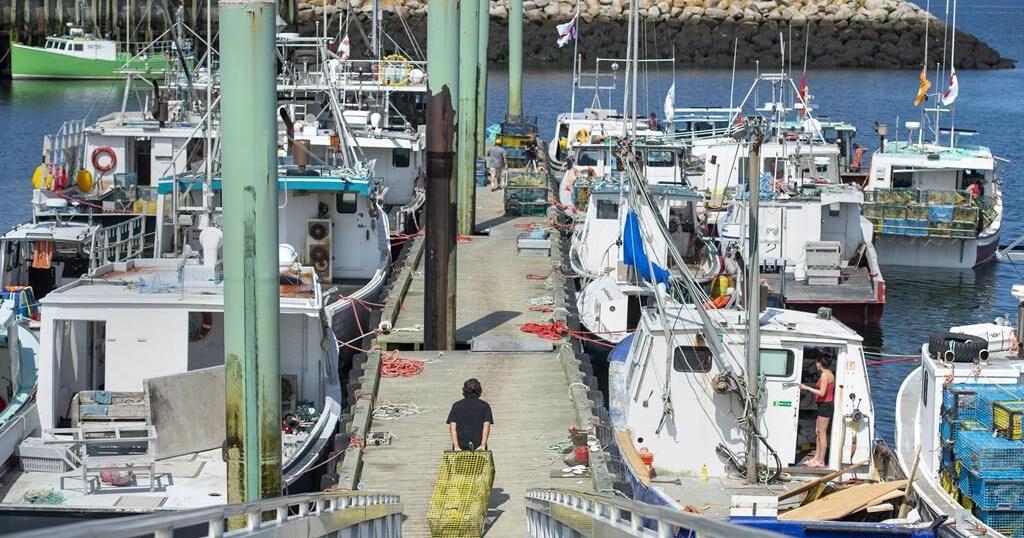HALIFAX – Low-income tenants in Nova Scotia who fall behind on their rent could soon turn to a rent bank for a no-interest emergency loan if the Liberal party wins the provincial election on Nov. 26.
Party leader Zach Churchill, who is trying to unseat Progressive Conservative Premier Tim Houston, talked about the key election pledge Wednesday during a campaign event at Liberal campaign headquarters in Halifax.
“We’ve had some of the highest rental increases in the country,” Churchill said, adding that low-income tenants are frequently finding themselves in financial distress. “Renters often have difficulty qualifying for loans, but they, too, deserve the security that homeowners enjoy.”
The party’s platform, released Monday, says the proposed rent bank — an idea borrowed from British Columbia — could provide quick-turnaround loans of up to $3,500.
The Liberals say the B.C. government spent $10 million establishing the BC Rent Bank, which now supports a loan network across the province. Based on population, a similar bank in Nova Scotia would cost about $2 million to set up, the Liberals say.
The BC Rent Bank was started as a pilot project in 2019. Its initial three-year mandate was to support seven independent rent banks and establish new ones. With the help of community partners, it also provides eviction prevention and housing stability services to prevent homelessness, as well as financial literacy programs and connections to government benefits and housing supports.
“Our comprehensive services and non-judgmental approach help alleviate stress and ensure people have a plan to get back on their feet and maintain their housing,” the organization says on its website.
In 2023-24, the BC Rent Bank distributed more than $2.4 million through 18 rent banks to support 3,436 renters in over 1,500 households. The organization has also moved beyond offering traditional loans to distributing grants in some regions.
Churchill said a Liberal government would improve rent controls by replacing the province’s fixed-rate rent cap — now at five per cent — with a variable cap based on inflation, market conditions and regional vacancy rates.
Plans are also in the works to close loopholes in the province’s rules for fixed-term leases, Churchill said. Under the party’s proposal, landlords could no longer offer tenants leases longer than one year unless both parties agree.
The Liberal platform also calls for establishing a residential tenancies enforcement unit and reversing the Tory government’s cuts to the rental supplement for those who pay more than 30 per cent of their pre-tax income on rent.
Elsewhere on the campaign trail, NDP Leader Claudia Chender announced that, if elected, a New Democratic government would open 15 doctor clinics across the province during its first year in office at a cost of $60 million.
She said the clinics would be collaborative practices staffed by doctors, nurses and other health-care providers, with the aim of clearing the backlog of people looking for a primary care provider, which has doubled over the past three years to include about 145,000 people.
“The Nova Scotians I talk with tell me they’ve had enough of the patchwork health-care system,” Chender said. “We will make sure that Nova Scotians can get the health care they need, when they need it.”
Chender made the announcement outside the North End Community Health Centre in Halifax.
“I think the vision is well expressed in the building behind me,” she said. “It is a clinic that is connected to the community, that has a diverse number of services and health-care professionals that can meet the needs of the community.”
After establishing the initial 15 clinics, the NDP’s long-term plan is to open 15 doctor clinics in the second year of its plan and another 15 in the third year. “This is a priority of an NDP government, so absolutely we will get them set up quickly,” Chender said.
Tim Houston, leader of the incumbent Progressive Conservatives, was campaigning in the suburbs of Halifax and had no plans to make any formal announcements on Wednesday.
Wednesday marked the final day for candidate nominations. The three main parties contesting the election have already confirmed they will each have a full slate of 55 candidates.
At dissolution, the Progressive Conservatives held 34 seats, the Liberals had 14 seats, the NDP six and there was one Independent.
This report by The Canadian Press was first published Nov. 6, 2024.
























